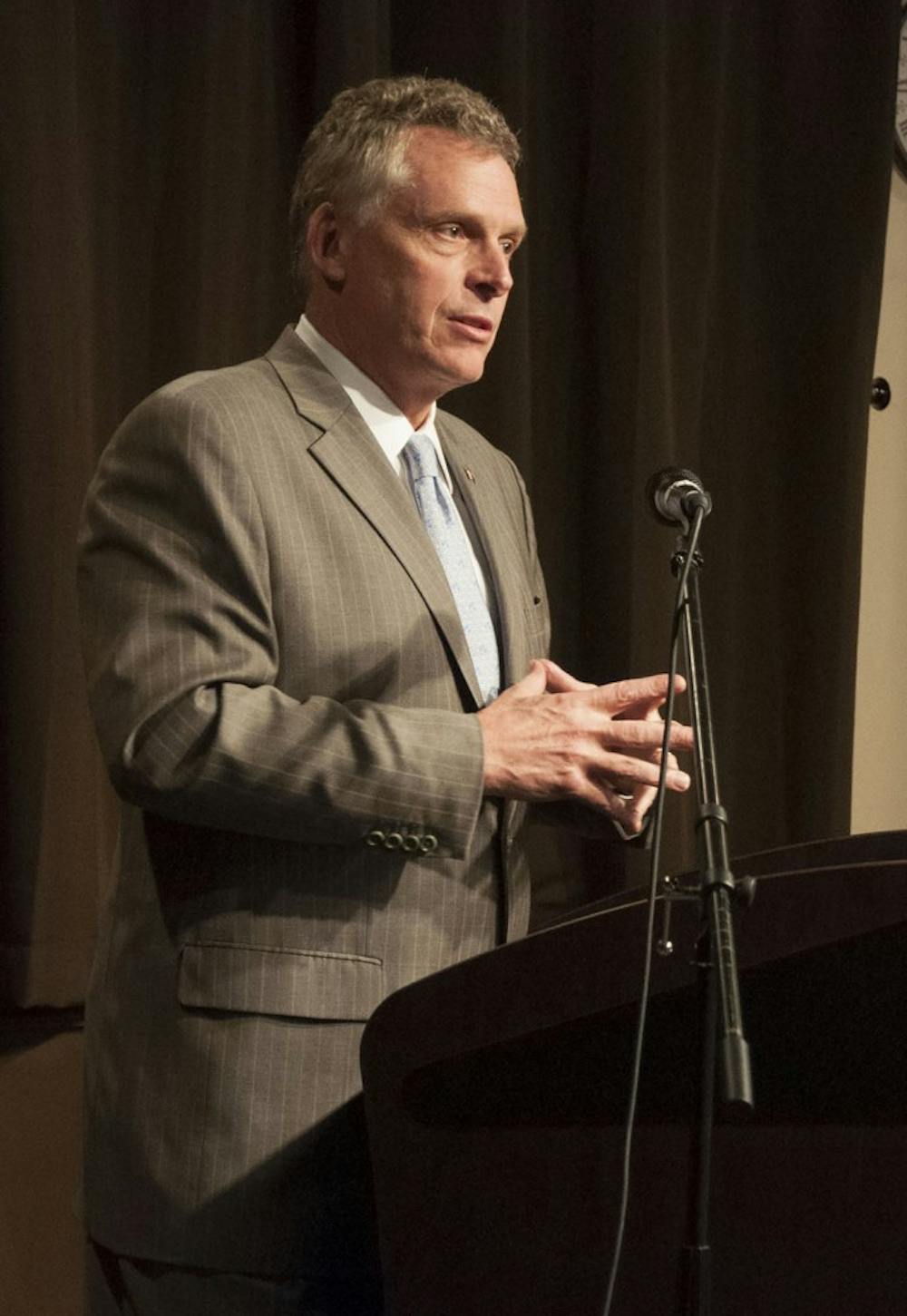Gov. Terry McAuliffe announced Monday the legislature has reached a budget deal for fiscal years 2015 and 2016. McAuliffe said the deal reflects a bipartisan effort to solve a $2.4 billion deficit caused by lower than expected revenues.
The plan seeks to close the gap by $346 million in fiscal year 2015 and by another $536 in fiscal year 2016.
McAuliffe Press Secretary Brian Coy said Virginia’s Constitution requires the budget be balanced annually.
“When [the economic] trend changes, especially when it is under, then you have to start taking things off the table,” Coy said. “For fiscal year 2015, these cuts should do it. For fiscal year 2016, the hope is the same. Anything could change. There are no guarantees. We wanted to take action as early as possible to give agencies the flexibility to react to this.”
According to a press release issued by the Governor’s Office, the budget cuts $92.4 million in fiscal year 2015 and $100 million in fiscal year 2016 to state agencies, $45 million in higher education each year, and $30 million in aid to localities in each year. The state also plans to balance the budget using $705 million in the next two years in transfers from the Revenue Stabilization Fund, also known as the rainy day fund.
The biggest cuts fall on state agencies, but the distribution of those cuts has not yet been determined.
“The cuts to all state agencies are still a little bit yet to be determined,” Coy said. “The Governor has a lot of autonomy within the deal we struck yesterday to figure out where that money will come from. He wants to do this in as targeted and responsible a way as possible.”
McAuliffe said in the press release the budget deal safeguards areas like K-12 education and health care.
“While the budget shortfall is forcing us to tighten our belts, I am proud that we were able to protect many of our core democratic priorities, including health care and K-12 funding for this fiscal year,” McAuliffe said.
Coy said this shortfall is surprising.
“It is a little bit unheard of for Virginia’s revenues [to] have declined outside of a national recession,” he said. “The national economy is growing slowly.”
Coy said the discrepancy between the state of the Virginia economy and the nation's can largely be explained by policies enacted at the national level, largely the federal government’s cuts to defense spending.
“Virginia takes the largest brunt of that,” Coy said. “We have more defense spending here than any other state. When they cut that we take the largest hit.”
Coy said the legislature was able to come to a deal for balancing the budget through open communication about what different parties felt were most important.
“It is basically negotiation,” he said. “Everyone who is elected to serve has priorities. The Governor had a priority for protecting money for K-12 and doing everything we can to insulate higher education. They get on the phone and they talk about it. What was interesting about this was that they were able to do it in a bipartisan way.”
Republicans and Democrats alike praised the bipartisanship effort in which the deal was struck.
“While Washington continues to kick the can down the road, Virginia is demonstrating that elected leaders can work together, make tough decisions, and find ways for government to live within its means,” House Speaker William Howell, R-Stafford, said.
“This is something that we have dealt with and deal with responsibly,” Coy added. “But it is never easy.”







